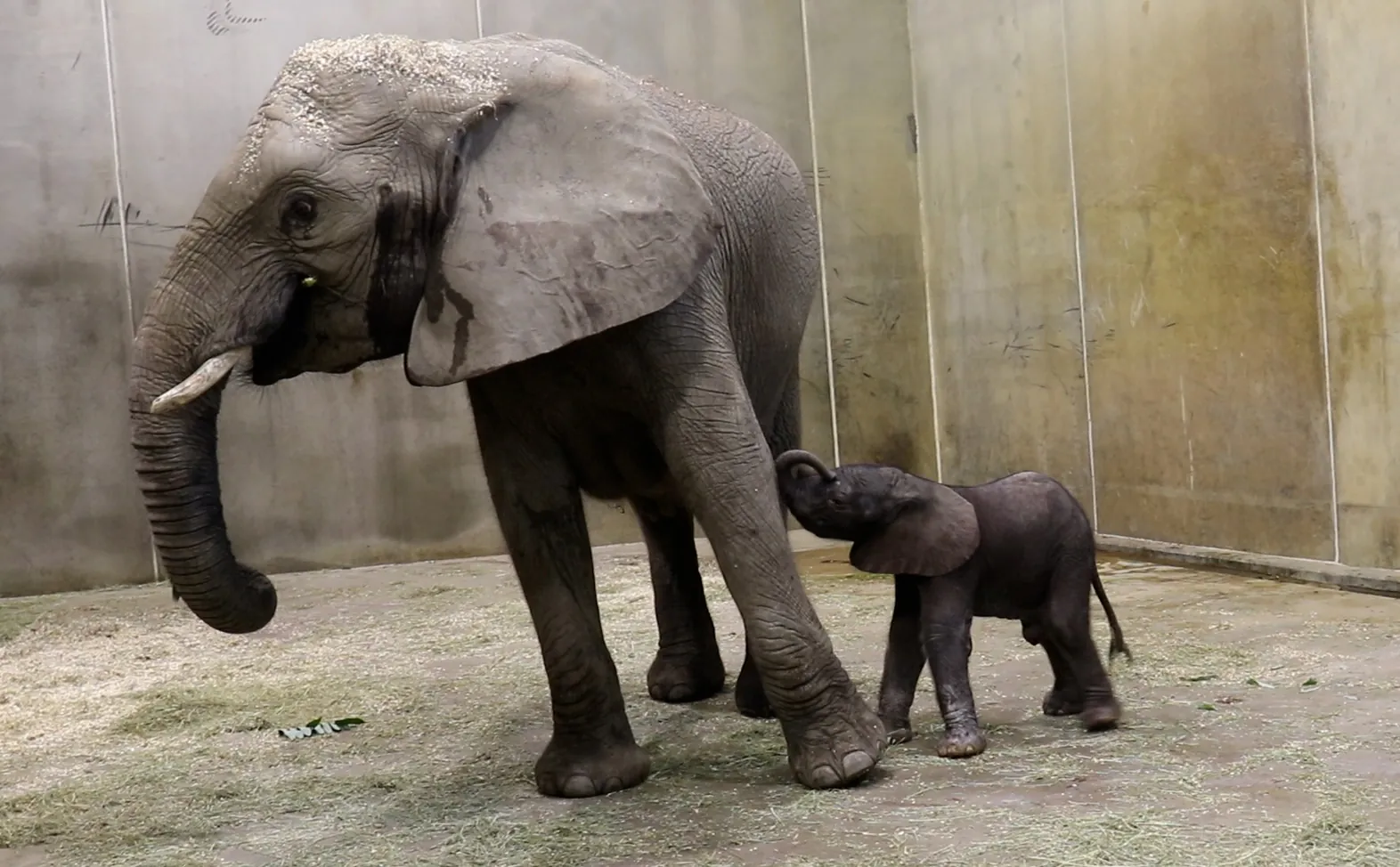-
Menu
- Plan Your Visit
- Meet The Animals
- Check Out Events
- Memberships
- About The Zoo
- Support the Zoo
- Conservation
- Education
- Groups & Private Events
- Zoo News
- Contact
- Zoo Store
- Indianapolis Prize
- Global Center for Species Survival
- Schedule
- Donate
- Membership
- Tickets

- Plan Your Visit
- Meet The Animals
- Check Out Events
- Memberships
- About The Zoo
- Support the Zoo
- Conservation
- Education
- Groups & Private Events
- Zoo News
- Contact
- Zoo Store
- Indianapolis Prize
- Global Center for Species Survival

Indianapolis Zoo Welcomes Baby Elephant Calf
by Cody Mattox
Zoo Makes History on a Special “Labor” Day
This Labor Day was history-making for the Indianapolis Zoo with first-time elephant mother Zahara bringing a male calf into the world. The newest member of the Zoo’s African elephant herd arrived Monday evening shortly after 5:30pm. The birth made history as the first elephant in the world (African or Asian) to be born through artificial insemination to a mother who was also born through the same procedure.
Elephant care staff began staying overnight on Friday when routine blood tests alerted them to the impending birth. Assistant Curator of Elephants Niki Kowalski reported that the calf arrived only 20 minutes after the initial signs of labor. “Zahara’s mother Ivory is known for her short labor times, and this baby came quickly as well,” said Kowalski. The calf weighs 262 pounds, which is a healthy birthweight. Average birthweight for African elephant calves is 226 pounds, with males typically weighing heavier than females. The calf is strong and was standing within 10 minutes of birth. Mom and baby are doing great and have bonded quickly. “What a great way to celebrate Labor Day,” she added.
Kowalski has also noted that Zahara is being a very attentive and gentle mother, and is constantly checking on him. Zahara is a first time mom, and nursing is new to both her and the calf, but they are starting to figure it out. “The baby boy is adventurous and playful,” Kowalski said. “He is very active and curious about all those around him- elephant and human alike!”
Prior to the calf’s birth, Zahara was the Zoo’s youngest elephant, at age 17. Her calf is the seventh to be born at the Indianapolis Zoo. “We are especially excited as this calf will begin a third generation in the herd at the Zoo.” said President & CEO Robert Shumaker. The Indianapolis Zoo is recognized as a leader in African elephant reproduction. The first and second African elephants in the world to be conceived and successfully born through artificial insemination were at the Zoo in 2000. Multi-generational herds are the most natural and healthy social setting for elephants. They are also essential to educate Zoo visitors which creates a conservation ethic to further elephant survival in the wild.
By visiting zoos accredited by the Association of Zoos and Aquariums, guests are contributing to the fight against poaching and helping to save elephants. Visitors help make possible the field conservation, research, habitat restoration, reduction of human-elephant conflicts and community based initiatives necessary to protect wild populations. Click here to learn more.
